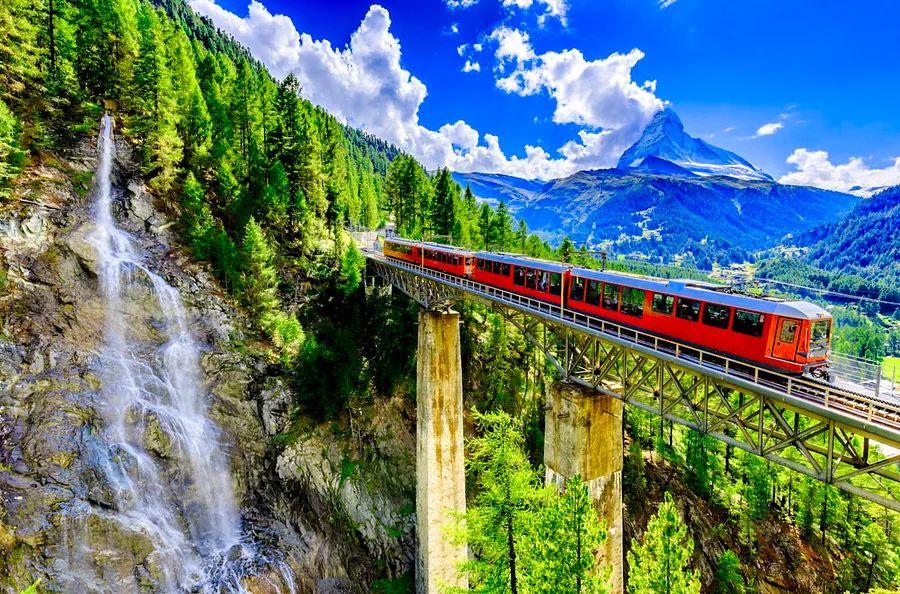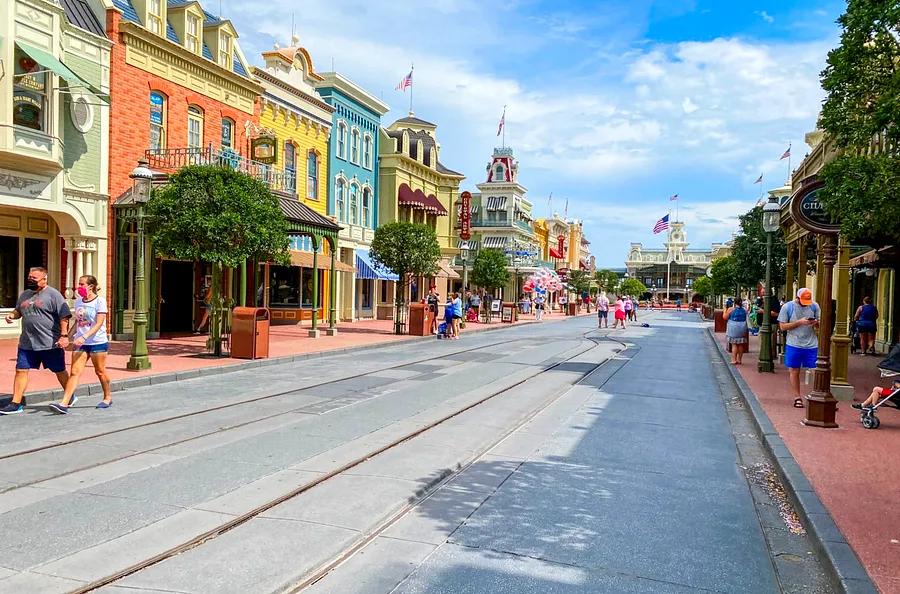14 essential tips for visiting Switzerland

When I relocated to Switzerland ten years ago, I never imagined I'd still be here. With its stunning scenery, pleasant climate, efficient public transport, multilingual culture, and love for cheese and wine, it’s a place that quickly feels like home—even if it's a bit on the expensive side.
Experience Swiss life firsthand with these essential tips to remember before your trip to Switzerland.
 Make sure to schedule any must-see attractions, like the Titlis Cliff Walk, and plan your budget accordingly © 2p2play / Shutterstock
Make sure to schedule any must-see attractions, like the Titlis Cliff Walk, and plan your budget accordingly © 2p2play / Shutterstock1. Identify your must-see attractions
You can traverse the entirety of Switzerland in just a few hours, but this compact nation is brimming with experiences, from culturally vibrant cities and quaint mountain hamlets to breathtaking alpine scenery and expansive lakes. Thanks to its efficient transportation system, everything is within reach, allowing you to explore a city in the morning, take a lake ferry at noon, and ascend a mountain by afternoon. Whether you’re on a quick city getaway or leisurely exploring by train, car, or bike, Switzerland caters to every type of traveler.
2. Be prepared for changing weather
Switzerland typically experiences distinct seasons, with hot summers and chilly winters; however, surprises are always possible. Sudden summer storms may catch you off guard, and nighttime temperatures can drop sharply in the mountains even after a warm day—snow at high elevations in August is not unusual. Be ready for any weather, and pack extra clothing when venturing into alpine regions. The federal weather service provides reliable local forecasts.
 Switzerland's train system offers a fantastic way to explore the country © Maythee Voran / Shutterstock
Switzerland's train system offers a fantastic way to explore the country © Maythee Voran / Shutterstock3. Get the SBB app and search for Supersaver tickets
The simplest way to purchase train tickets is through the SBB/CFF/FFS app, which is Switzerland's official rail service. Enter your credit card information the first time you use it, and subsequent purchases are just a few taps away. If you buy tickets on the travel day, prices remain constant throughout the day (no early bird or off-peak discounts), but if you can plan ahead, look for Supersaver tickets that can significantly reduce costs. Additionally, consider multi-day transport passes or day passes to save even more.
4. Reserve hotels and mountain lodges early
Switzerland is a sought-after destination, so accommodations fill up quickly. Always make reservations in advance, especially if you’re trying to stick to a budget. This applies not just to cities and popular resort areas, but even dormitory beds in remote mountain cabins can be in high demand during peak seasons. Remember to bring a sheet sleeping bag, as they are required in most high-altitude cabins.
5. Be ready to spend some money
Switzerland is known for its high costs. While there are ways to travel on a budget, it's wise to acknowledge that some expenses are inevitable. Although it may sting to pay for meals, lodging, and transportation, the breathtaking views from a mountaintop will make it all worthwhile—your friends will think you’ve edited the photos, I promise.
 The local language varies depending on where you are in Switzerland © Getty Images
The local language varies depending on where you are in Switzerland © Getty Images6. Don't assume everyone speaks multiple languages
Communication in Switzerland can be complex. Despite having a strong national identity, the country is divided by its four official languages—French, Swiss German, Italian, and Romansh. While some towns like Biel/Bienne and Fribourg sit on language borders, rural areas can starkly contrast, with a francophone village on one side and a Swiss-German-speaking one just five kilometers away. Although many Swiss people are multilingual, don’t assume everyone speaks each other's languages; you might find more people fluent in English than in another Swiss language.
7. Sprechen Sie Deutsch? Swiss German differs significantly
German speakers may think they can easily understand the Swiss, but that’s not always the case. Hochdeutsch (high German) is quite different from Schweizerdeutsch (Swiss German), which can leave even native German speakers puzzled at times. Additionally, Swiss German isn’t a single language; it includes various dialects. However, don’t worry if you say Grüezi (hello) and get a Grüessech in reply—your effort will be appreciated, even if it’s not perfect.
8. Be mindful of your terminology
When discussing language regions in Switzerland, avoid calling an area the 'French' region. Instead, use terms like French-speaking or francophone. This country takes pride in its independence and neutrality, and implying it belongs to another nation may not be received well!
 Using local terms is a simple and effective way to win over the Swiss © Getty Images
Using local terms is a simple and effective way to win over the Swiss © Getty Images9. Refer to places by their local names
You’ll find it easier to make connections if you use the correct local names instead of anglicized versions. For instance, if you mention Lake Geneva to someone from Lausanne, expect a disapproving look and a correction about Lac Léman. Similarly, Lake Lucerne should be referred to as Vierwaldstättersee, and Lake Constance as Bodensee.
10. Tipping is optional but appreciated
Tipping isn’t a common practice in Switzerland. While leaving a 10% tip for a pleasant meal is appreciated, it’s not mandatory—especially if you’ve only had drinks at a bar. Given the high prices and decent wages in the service sector, it's generally not expected.
11. Pair wine with your fondue
Switzerland’s most iconic dish, fondue, comes with its own set of etiquette rules: no double-dipping, don’t drop bread in the pot, and never leave the crusty bit at the bottom (la religieuse) uneaten. The key rule, however, is to enjoy it with wine—preferably a dry Swiss white like Chasselas, the country’s most common grape. It’s said to aid digestion (along with schnapps), while drinking water is believed to make the cheese solidify in your stomach. Or perhaps it’s just the Swiss excuse to indulge in wine!
12. Skip bottled water – tap water is excellent
Bottled water can be a major expense in Switzerland, and it's entirely unnecessary since the tap water is just as delicious and readily available. Bring a reusable bottle to fill up at the many fountains scattered across cities, towns, and mountain villages. Unless stated otherwise, it’s safe and tasty. Just be aware that some restaurants may resist serving tap water—except in the canton of Ticino, where it's required. You might encounter charges or refusal if you don’t order another drink alongside it.
 Always keep your belongings close while traveling to and from the airport © Getty Images
Always keep your belongings close while traveling to and from the airport © Getty Images13. Be vigilant with your luggage when arriving from the airport
Switzerland is generally a safe and trustworthy place, but it’s wise to keep an eye on your bags when taking the train from the airport, as thieves sometimes target fresh arrivals. Sit near the luggage rack or place your bags on the overhead shelf.
14. Prioritize safety in the mountains – and be cautious of cows
One of the joys of exploring Switzerland lies in its majestic mountains, but don’t overlook the unpredictability of nature. Ensure you're equipped with sturdy boots and appropriate clothing in case the weather changes. Check the forecast and trail conditions before you head out, and follow local guidelines to steer clear of areas prone to rockfalls or other dangers.
It's wise to inform someone about your plans, including your expected return time. Use trail maps available on Wanderland.ch and save 1414 – the emergency contact for Rega, Switzerland’s air rescue service – in your phone just in case.
If you encounter cows with calves in the fields, maintain a safe distance – though uncommon, there have been reports of hikers getting trampled by protective mother cows.
Here are additional expert tips to assist you in planning your trip to Switzerland:
Keep this guide to the top activities in Switzerland handy. Consider planning a road trip (or several) using this guide. Discover the best times to visit based on your interests and budget. Enjoy some free activities in Switzerland to ease your spending. And learn why taking the train (plus other transport advice) is essential for your Swiss adventure.

1

2

3

4

5
Evaluation :
5/5